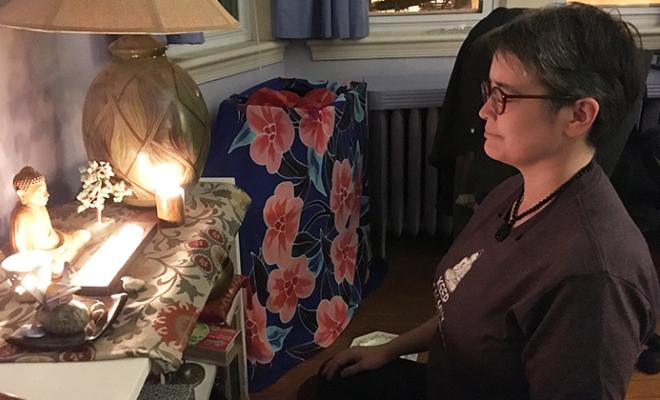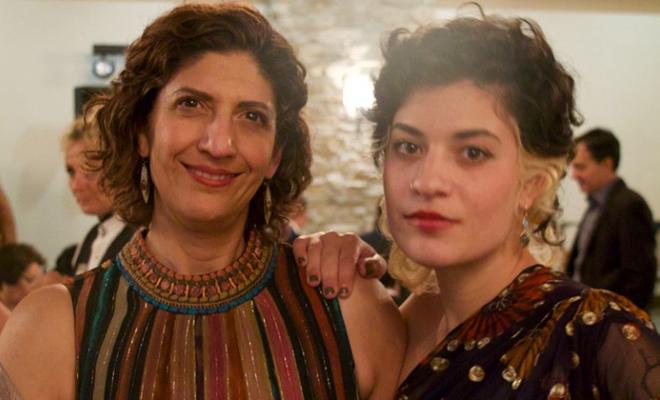We are not staying alive to be happy. We are staying alive so that we can feel the full range of human emotions and experiences. I've paraphrased, but essentially that is what my peer mentee said when I told her that I was struggling to write this blog post about the wonder that is becoming old enough to take care of my aging parents despite my cystic fibrosis.
My mother has Parkinson's disease and Parkinson's dementia. The one thing she hasn't lost is her sharp British humor. She has aphasia and can barely speak, but when she does, she makes hilariously witty remarks. “A likely story,” has been her go-to phrase for a long time, and she uses it now.
“I'm going to wipe your bottom now, Mom,” I say.
“A likely story,” she quips, as if I might have other plans.
But that's the thing -- I'm glad to be here, cleaning up poop, helping her blow her nose, hurting my back trying to move her from place to place. It's not glamorous, and it can be physically difficult. I know it's emotionally wrenching for her every time she frets about the people she sees in her hallucinations -- “Why are they here? What are they doing?” I can't calm her fears most of the time.
My mom, if you'll pardon me, was the Best Mom in the World. Is, I should say, I guess. She was the lightbulb we moths flew around, the woman with our whole lives penciled onto the calendar, the driver, the counselor, the British import who knew more American history than we did. She was a bookkeeper, journalist, editor, and photographer and smart as a whip.
Parkinson's, and in particular dementia, has robbed her of speech, reading, understanding of the sounds she hears, and most of her memory. To think that 10 years ago she was researching and writing a book is heartbreaking. To see her rebuff Dad's friendly gestures after a 52-year-long, happy marriage is crushing. When she looks at me and says, “Who are you?” I have to remind myself that it's the disease talking.
Who am I? Well, I am the one who was always the patient. When nurses and caregivers came to the house, it was for me. I sit in the conferences we hold with the nurse and have to remind myself that it's not about me anymore.
I go to clinic, and I'm doing relatively well. A likely story, I know!
I grew up in the 1970s and '80s being sure I would die before the millennium. To have hosted 19 more years in this body is a miracle. I will soon be 45, and although I don't have many of my cohort left who know what it's like to live with CF at this age, I know a vast world of 45-year-olds taking care of their parents. Everyone I know has a parent or two who needs more care than they once did. My dad has a significant loss of short-term memory, and although he is fairly healthy, I am his caregiver too.
They saw me through a childhood of cystic fibrosis, and now I wait at doctors' offices for them. She wiped my butt as a baby, and I do it for her now. She stroked my hand and told me I was doing OK, and now I do the same for her. I see that parallel; I almost enjoy it.
The universe has given me a chance to repay what I thought I never would.
Being in my 40s has been wonderful. I love the confidence that has come with age (I got a tattoo!). I love that I'm in my 20th year of marriage (it just gets better and better!). I love seeing my niece and nephews growing up and becoming teenagers (teenagers!!).
But taking care of Mom reminds me that the Buddha talked about the “10,000 joys and 10,000 sorrows” of life. Mom-care covers both of those, and we weren't put on this Earth to be happy. We all want to live long enough to feel the full range of human experience. I want to be here for the whole gamut, A to Z. Bring it on!
Eliza's mother, Judith Callard, died on May 5th of Parkinson's Dementia.
Join the conversation on Facebook.






